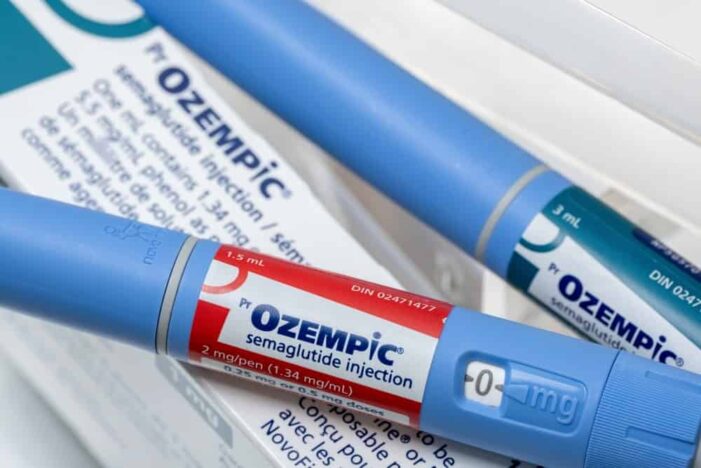| Weight-loss drugs like Wegovy and Ozempic have rapidly surged in popularity, but the benefits aren’t being distributed equally, reports Anissa Durham in a Word In Black–STAT collaboration.
“Many Black Americans … worry that their community is being left behind,” Durham writes.
These medications not only cause weight loss, they can also improve health in other ways, such as by lowering risk for stroke and heart attack.
But several factors impede Black access. People in minority groups are less likely to be prescribed these drugs than whites.
“I think the conversation is definitely missing in the Black community,” said Dr. Fatima Cody Stanford, an obesity specialist at Massachusetts General Hospital. Patients may be unaware that the medicines cause side effects and must be taken long-term for any weight loss to last.
Even for those in the know, access can be challenging. High demand has created shortages, with some patients waiting months to fill prescriptions.
And the sticker price, without insurance, is nearly $1,000 for a one-month supply.
“If you don’t have insurance or good insurance, it’s going to be more challenging to access it,” said Jonathan Gustave, an Orlando man who has Type 2 diabetes but has had difficulty filling his Ozempic prescription.
The need in the Black community is great: Non-Hispanic Black Americans have the nation’s highest rates of obesity. Black Americans, along with American Indians and Native Alaskans, have the highest rates of diabetes as well.
And social factors, such as lack of access to stores that sell fresh food and calorie-heavy church luncheons, can also contribute to weight gain in Black communities, Durham reports.
Black people with obesity face a double bias due to both race and weight, Durham notes, and Black women deal with even more body image distortion than Black men.
That bias persists even in the doctor’s office, where clinicians spend less time with patients who have obesity and are more likely to attribute health problems to their weight.
For example, Durham interviewed more than a dozen Black people about weight, and two women mentioned delays in diagnosing polycystic ovary syndrome, which can cause weight gain.
Yet the access to the new medications is not on par with the need in the Black community.
“If I could just get Ozempic, you have no idea, I’d take it in a heartbeat,” said Michel Hobson, a 67-year-old Texan with Type 2 diabetes. But the costs, she said, are well beyond her reach. |
